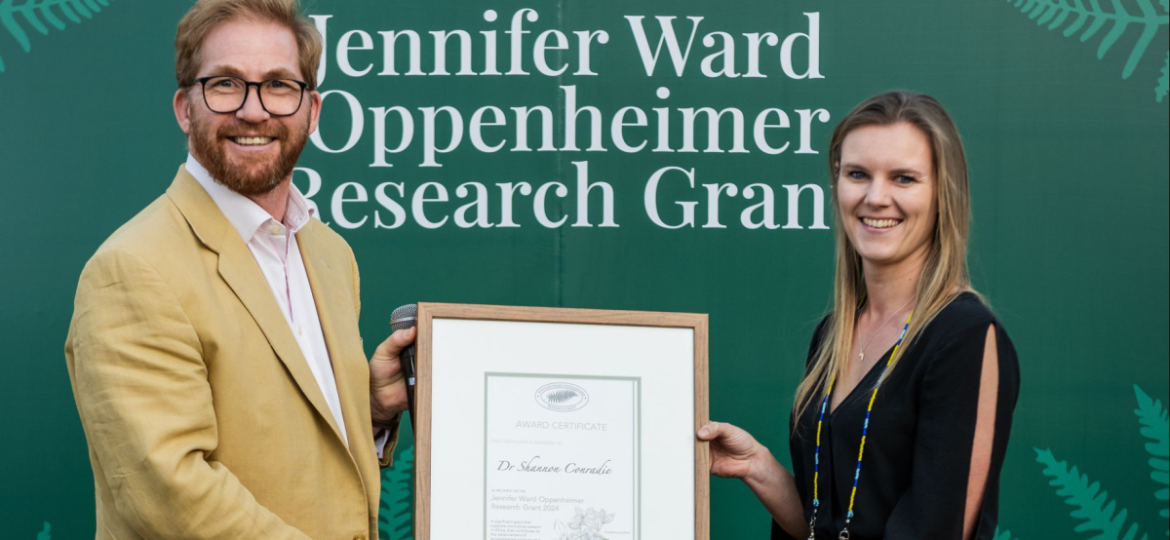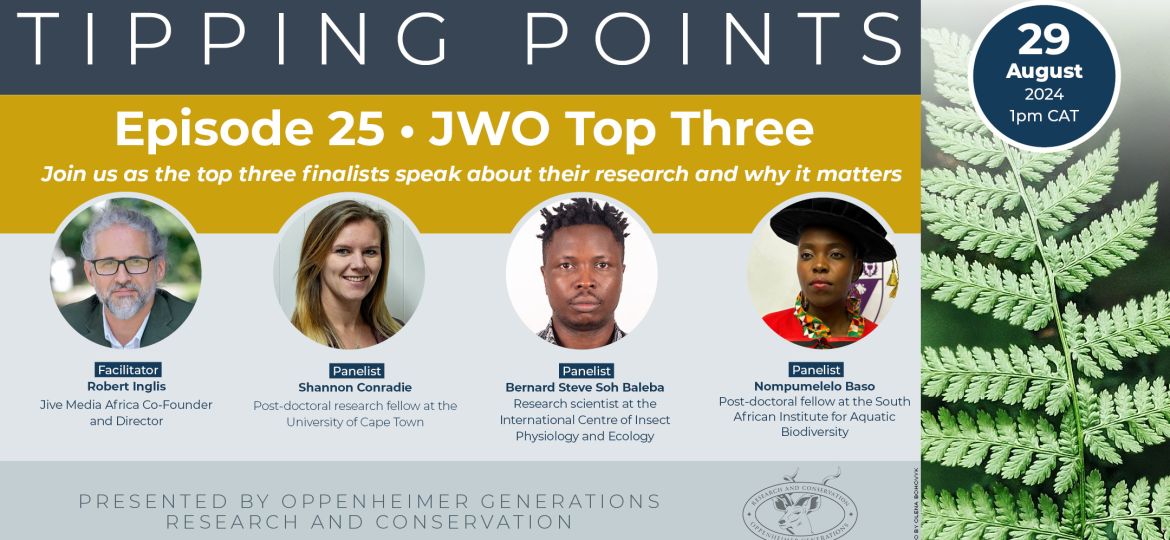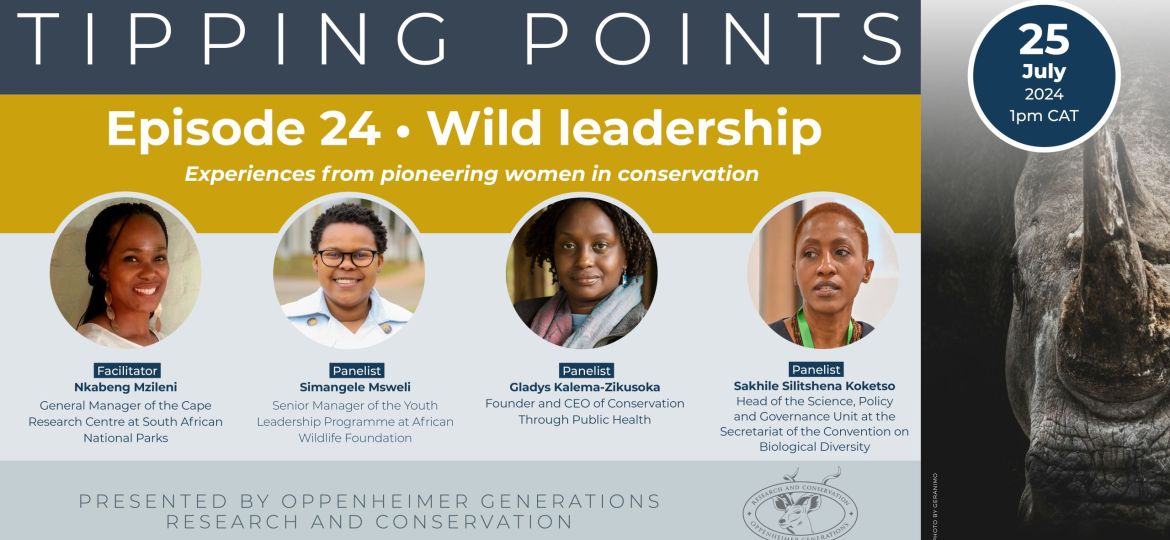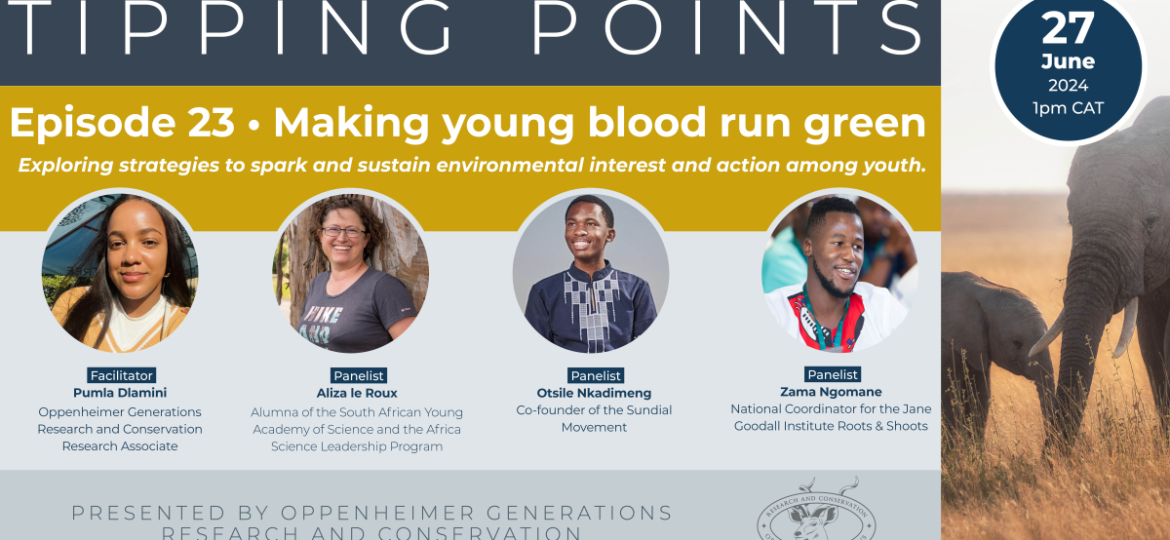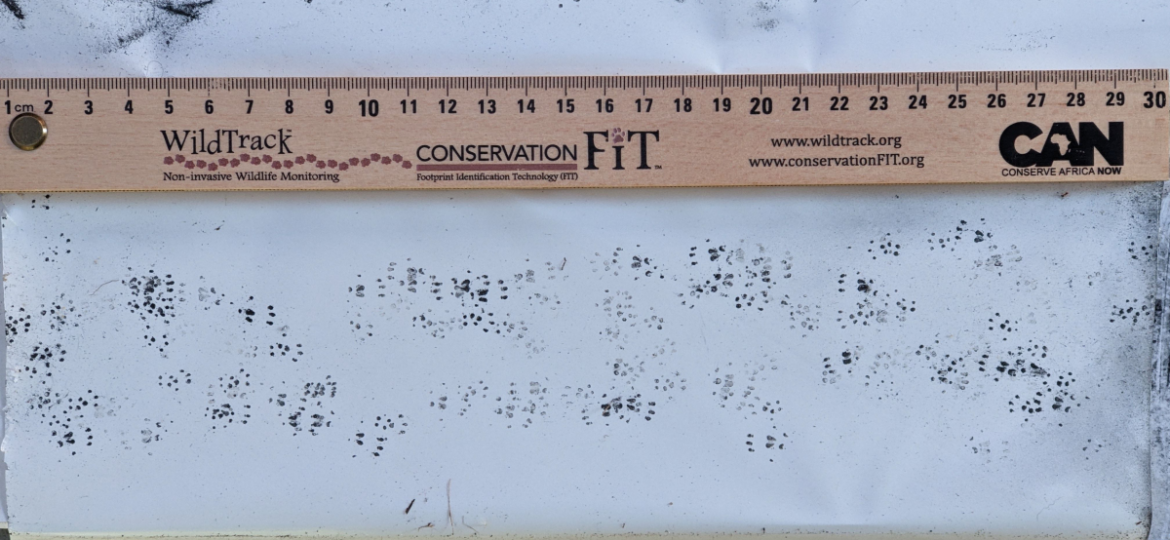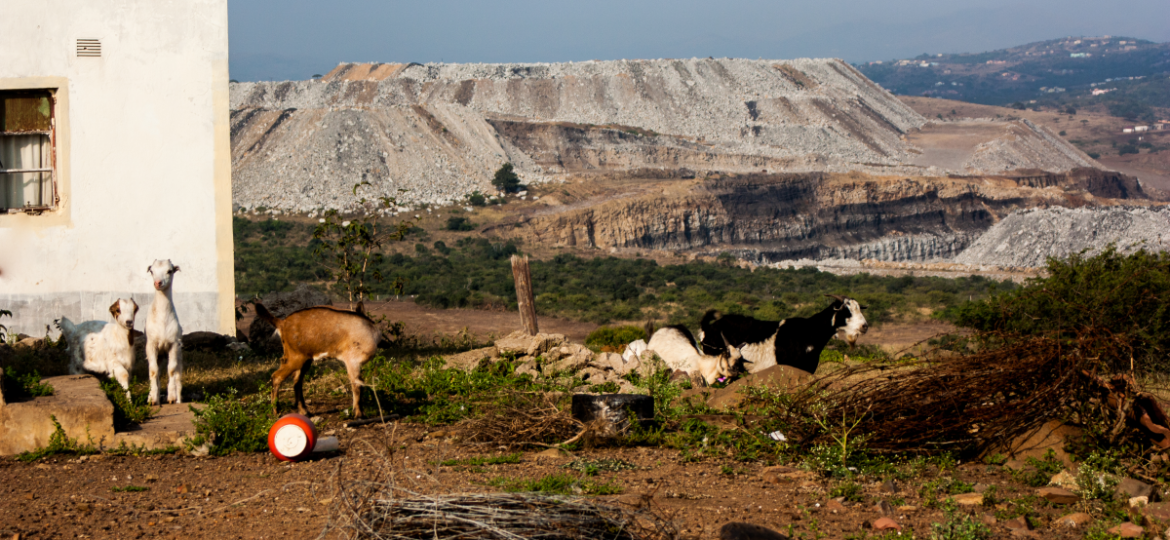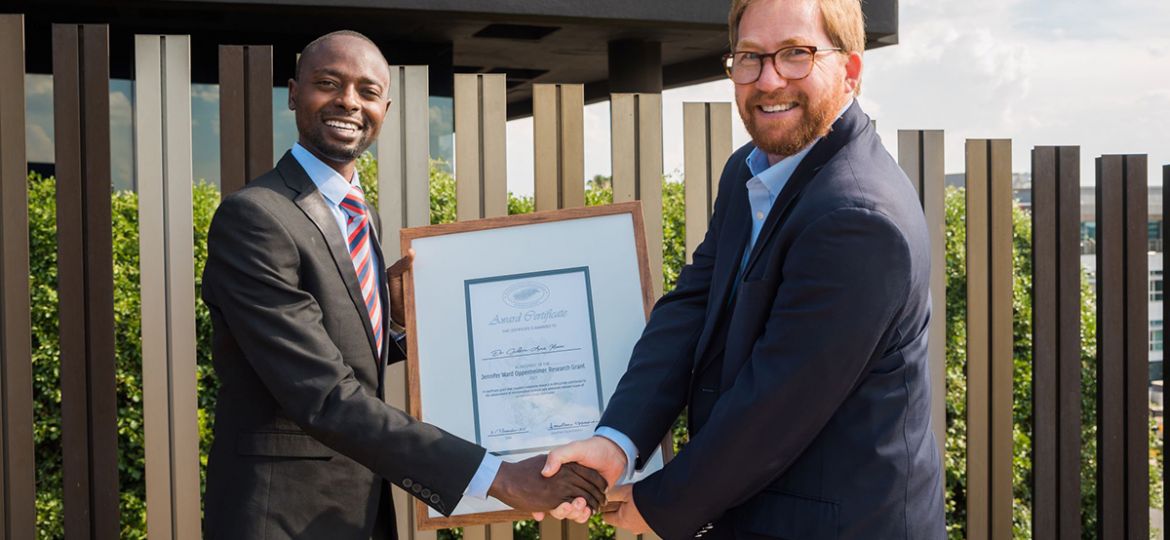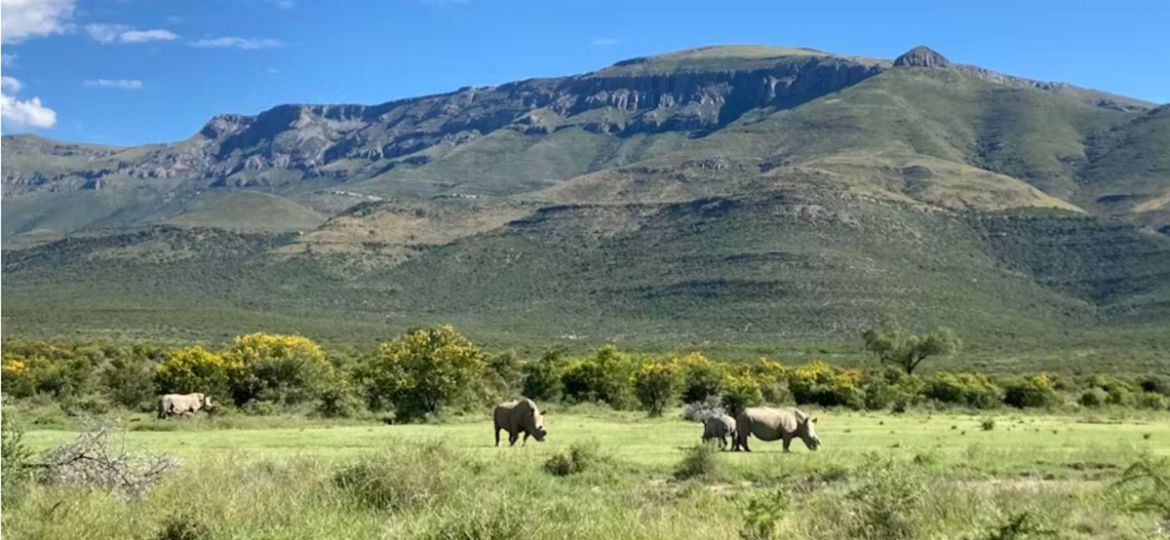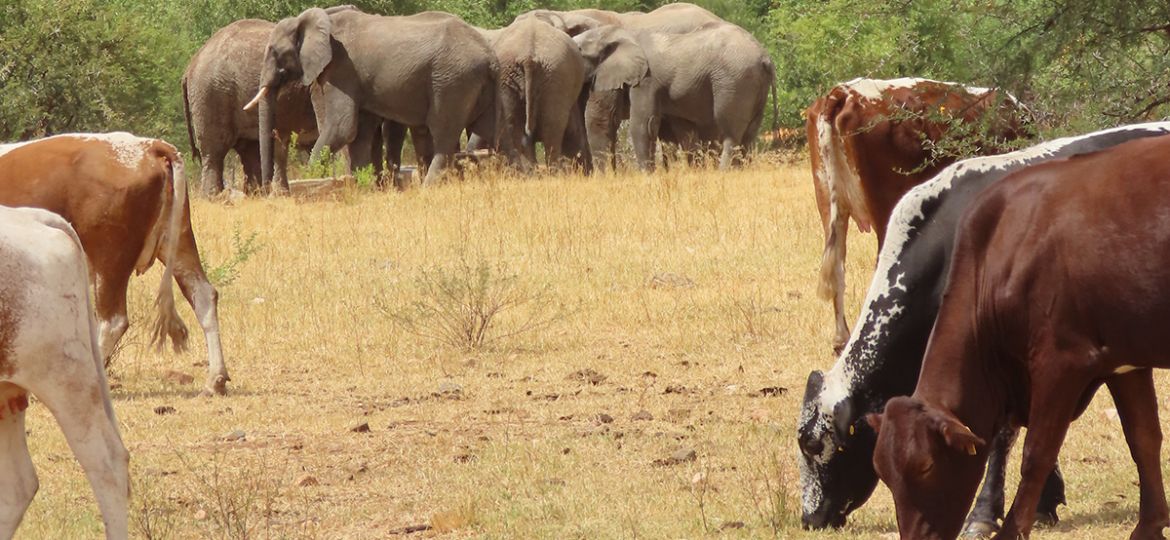Climate change biologist Dr Shannon Conradie. Winner of the 2024 $150 000 JWO research grant.
Tipping points, landscape ecology and climate change
Webinar calls for action to recognise indigenous knowledge as complementary to modern science.
Jennifer Ward Oppenheimer (JWO) discusses with the top three researchers, highlighting the significance of their groundbreaking research and its impact on their respective fields.
Kalema-Zikusoka, who was speaking at the 24th Oppenheimer Generations Research and Conservation “OGRC” Tipping Points webinar. The online seminar was held on the eve of South Africa’s Women’s Month and Kalema-Zikusoka’s overarching message to delegates was: “You are missing half the story and half the impact if you don’t involve women in conservation.”
What’s the big deal about nature? Experts say that if people can just hear it, feel it, live it, the answer would be obvious, and youngsters, in whose hands the future of nature rests, will get the message quickly.
Can tracking mouse footprints give clues to climate change? Yves Vanderhaeghen speaks to the founders of WildTrack, which is pioneering technology in South Africa to track small mammals so they can tell us about disruptions to ecosystems.
In the midst of political alliances with coal lobbyists, environmentalists are urging strategic voting and active citizenship to address the deepening climate crisis and stave off the collapse of natural systems.
The sacred Osun River in Nigeria has recorded the highest measured level of microplastics in a river in the world, and researchers are calling for a ban on single-use plastics.
The sacred Osun River in Nigeria has recorded the highest measured level of microplastics in a river in the world, and researchers are calling for a ban on single-use plastics.
A landmark new study has found that, in the last decade, the African continent has started emitting more carbon than it stores.



